Sep 14, 2022
DR ELLEN BARLOW ON GYNAECOLOGICAL CANCER
Every year, thousands of Australians are impacted by gynaecological cancer, whether through their own diagnosis or the diagnosis of a loved one. Yet, one in three people can’t name a single gynae cancer. As September marks Gynaecological Cancer Awareness Month, there’s no better time to educate ourselves about these cancers. We want people to feel empowered when it comes to their bodies and to understand what is and isn’t normal.
We spoke with Dr Ellen Barlow about eight gynaecological cancers, the importance of bringing awareness to these cancers and why research is essential for the recovery outcomes of those diagnosed.
On her passion for women’s health
Most of my nursing career has involved working in oncology —a branch of medicine focusing on the diagnosis, treatment and prevention of cancer. 25 years ago, I transitioned into gynaecological oncology where I was able to focus specifically on women’s health. Working at the Royal Hospital for Women was always a dream of mine, as they’ve been leading ground-breaking nursing research. It’s now been 22 years since I started at the Royal.
During these years, I worked closely with Professor Neville Hacker, a Founder and Director of the Australian Gynaecological Cancer Foundation. Professor Hacker was passionate about starting a foundation to help raise the necessary funding for gynae cancer research. I was honoured to be asked to become an ambassador for the Australian Gynaecological Cancer Foundation, and that’s how I first became involved with the AGCF!
What’s significant about the AGCF is that it raises funds and awareness for all eight gynae cancers. This is important because, as we know, thousands of women are diagnosed with different gynae cancers every year — each one of these cancers requires funding and research.
The gynaecological cancers
Gynaecological cancer refers to a group of cancers that start in a person’s reproductive organs, including their external genitals. There are eight types of gynae cancer: ovarian cancer, fallopian tube cancer, peritoneal cancer, endometrial or uterine cancer, cancer of the cervix, vulvar cancer, vaginal cancer and gestational trophoblastic disease, which is a cancer of the placenta. Each of these cancers is unique in that they have different symptoms, different risk factors, different courses of treatment and different prognosis.
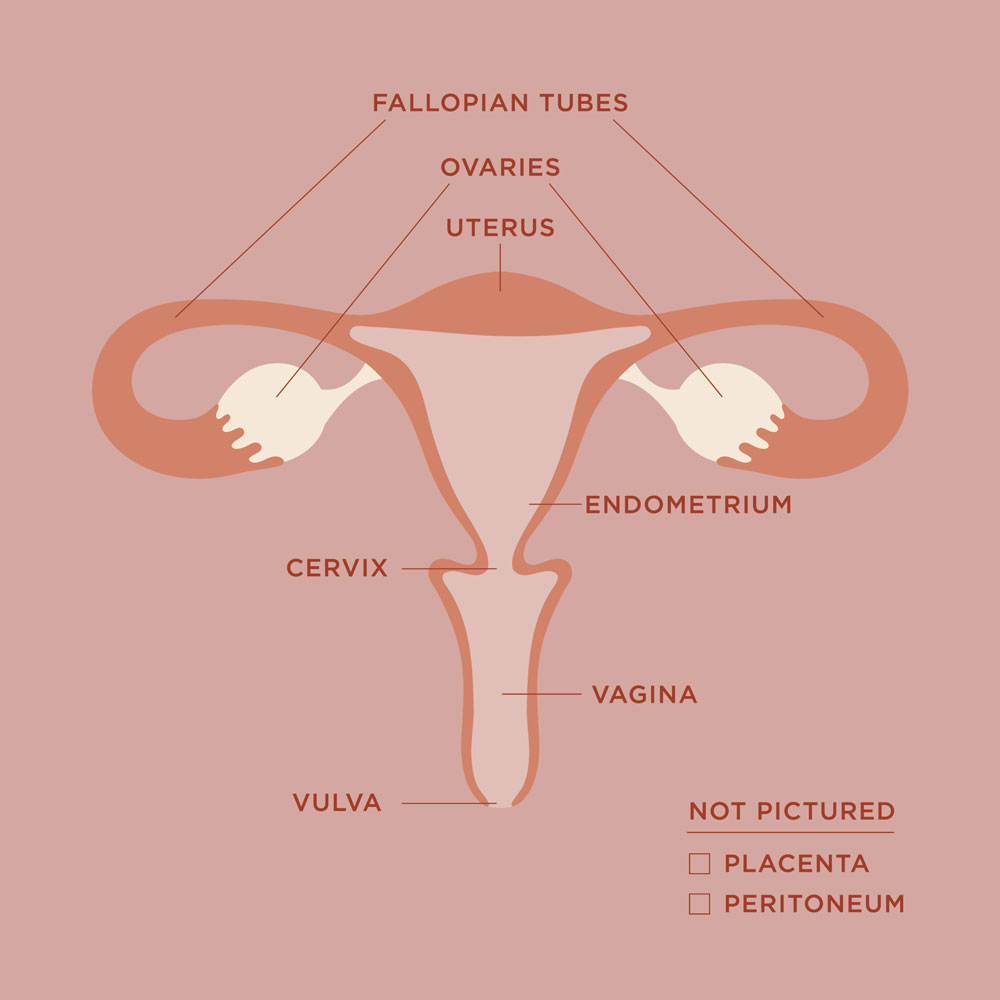
On what to look out for
Every gynae cancer has its own unique signs and symptoms, though there are several that are common to all gynaecological cancers. A symptom of many gynae cancers, aside from ovarian cancer, is bleeding. For uterine cancer, this is known as postmenopausal bleeding. For cervical cancer, a person may experience intermenstrual bleeding as well as painful intercourse.
Bleeding can be anything from spotting in a woman who hasn't had a period for several years, to a heavy bleed that may occur if there is a tumour. While a person of any age can be diagnosed, gynae cancer is predominant in older women and many of the women diagnosed are post-menopausal.
Noticing changes in your body
If you notice any abnormal bleeding — that is, any heavy bleeding that occurs outside of your normal menstrual cycle — or any other signs of gynae cancer, your GP should be your first port of call. They can assess the issue and then refer you to a gynaecologist.
Your gynaecologist will determine why you may be experiencing a symptom like abnormal bleeding, generally using a minor investigative procedure. Following this, you may be referred to an oncologist.
The importance of early diagnosis
Like other cancers, gynae cancer stages range from stage one through to stage four. Stage one indicates the cancer is just confined to one organ, while stage four indicates that the cancer has spread and is affecting organs outside of the pelvis.
If caught early and treated appropriately, any cancer is curable. Unfortunately, around 70% of ovarian, peritoneal and fallopian tube cancers will be diagnosed in an advanced stage. When cancer is diagnosed at a later stage, the possibility of recovery decreases. It's not impossible, but significantly less likely.
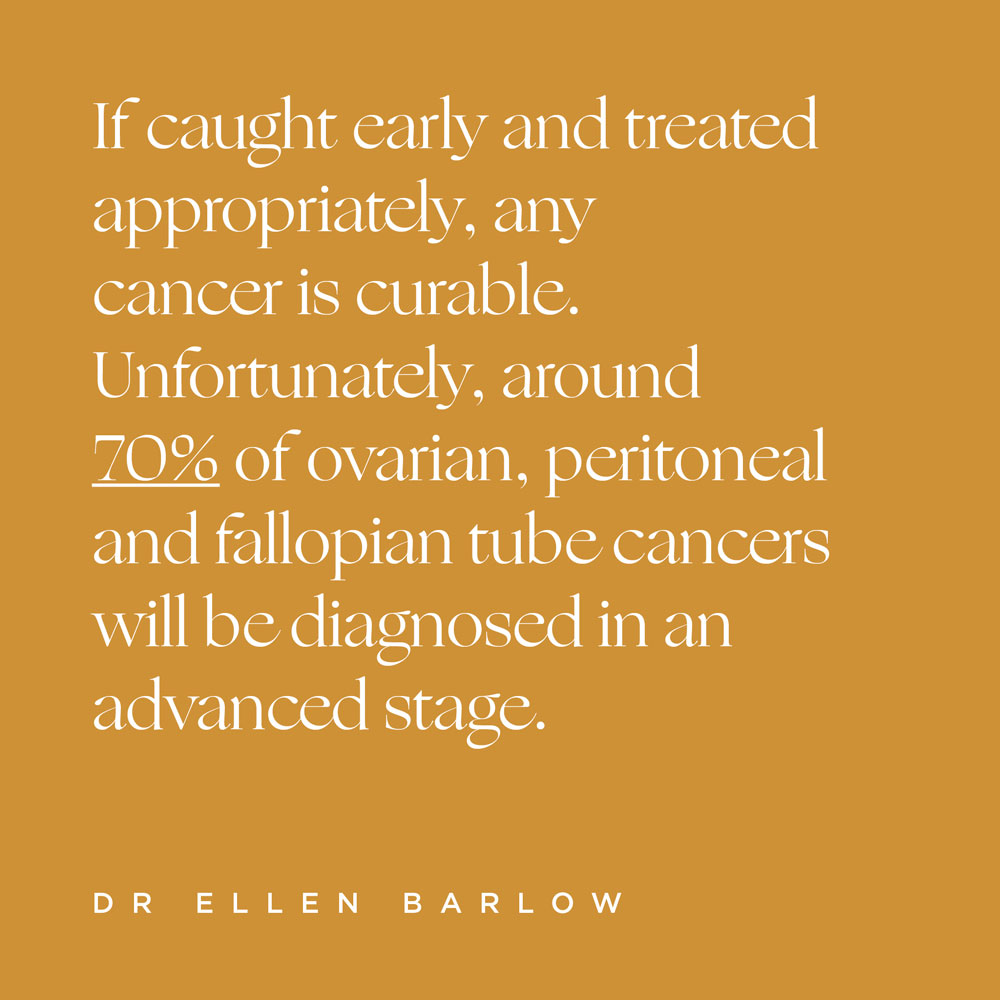
Awareness at every age
All women should have an awareness of their bodies, and this means having an understanding of the different gynae cancers. Most of us will be familiar with ovarian cancer or cervical cancer, thanks to Australia’s screening program and the vaccine, but many women do not realise cancers can also exist in the vagina or on the vulva. While vulvar and vaginal cancers are quite uncommon, they're also quite unknown and this means they often go unnoticed.
It’s about being aware of anything that feels abnormal, and knowing when to go and check in with your GP. Women don’t need to be constantly vigilant about getting gynae cancer but, if they do notice something abnormal, they need to follow up on it.
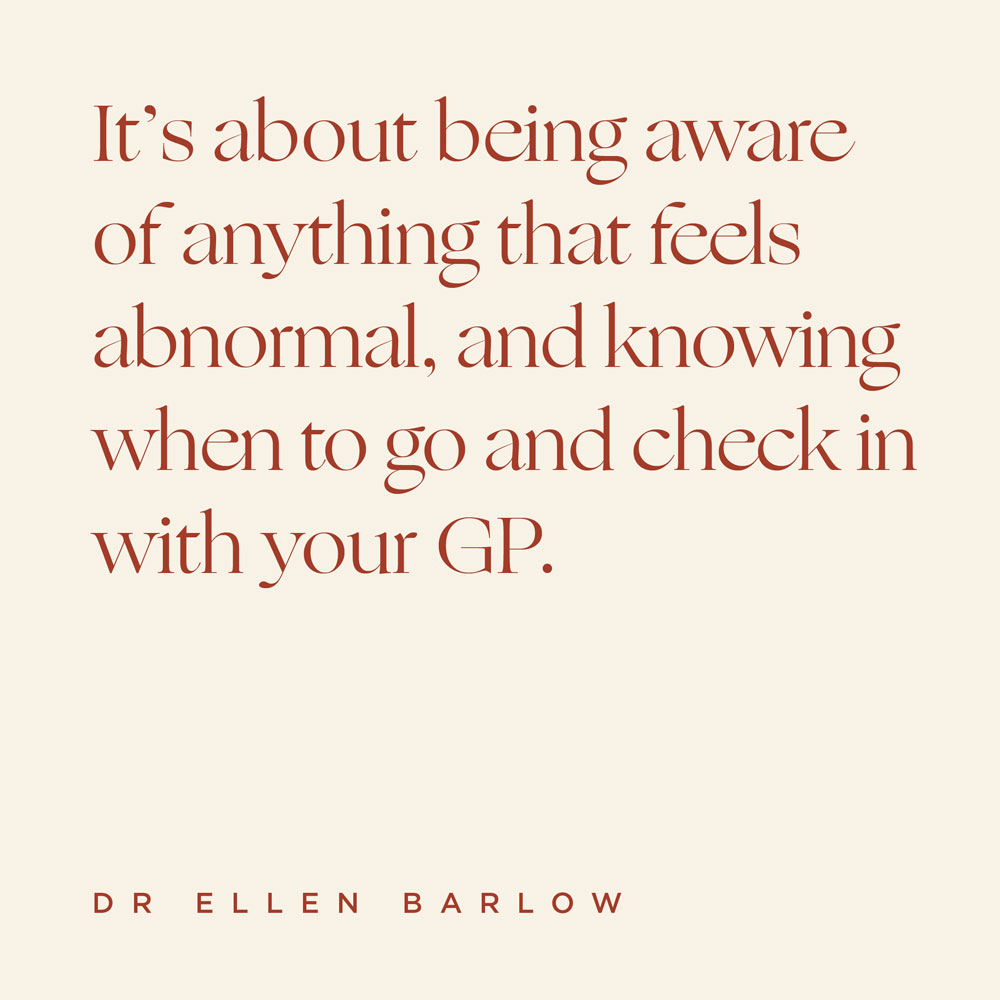
Supporting the AGCF
When it comes to the treatment and recovery of gynae cancers, basic research is essential. Unfortunately, there remains a lack of funding for these cancers. While AGCF provides a two-year research fellowship at $110,000 per year, there is a disproportionate level of money directed to cancers like breast cancer compared to the eight gynae cancers.
Research scientists do not earn a significant amount of money and many have poor job security, yet they are the people who will save us if we get a cancer diagnosis — they find the cures for cancer, they find the vaccines, and they find the screening tests. Research is where money needs to go.
In my years working in the field of gynae cancers, I’ve seen the difference research makes in recovery outcomes for cancer patients. (The vaccine for cervical cancer, for instance, and the development of PARP inhibitors and targeted therapies that can improve ovarian cancer outcomes.) In order for the research to be conducted, there needs to be adequate funding.
One of the best ways to support the AGCF is to create awareness and help them raise funds for research, particularly during the month of September.
Final thoughts
Talking about gynae cancers can be scary and confronting, but awareness is what ultimately saves lives. Pay attention to your body this September and always consult a doctor if you are experiencing any symptoms.
Blogs
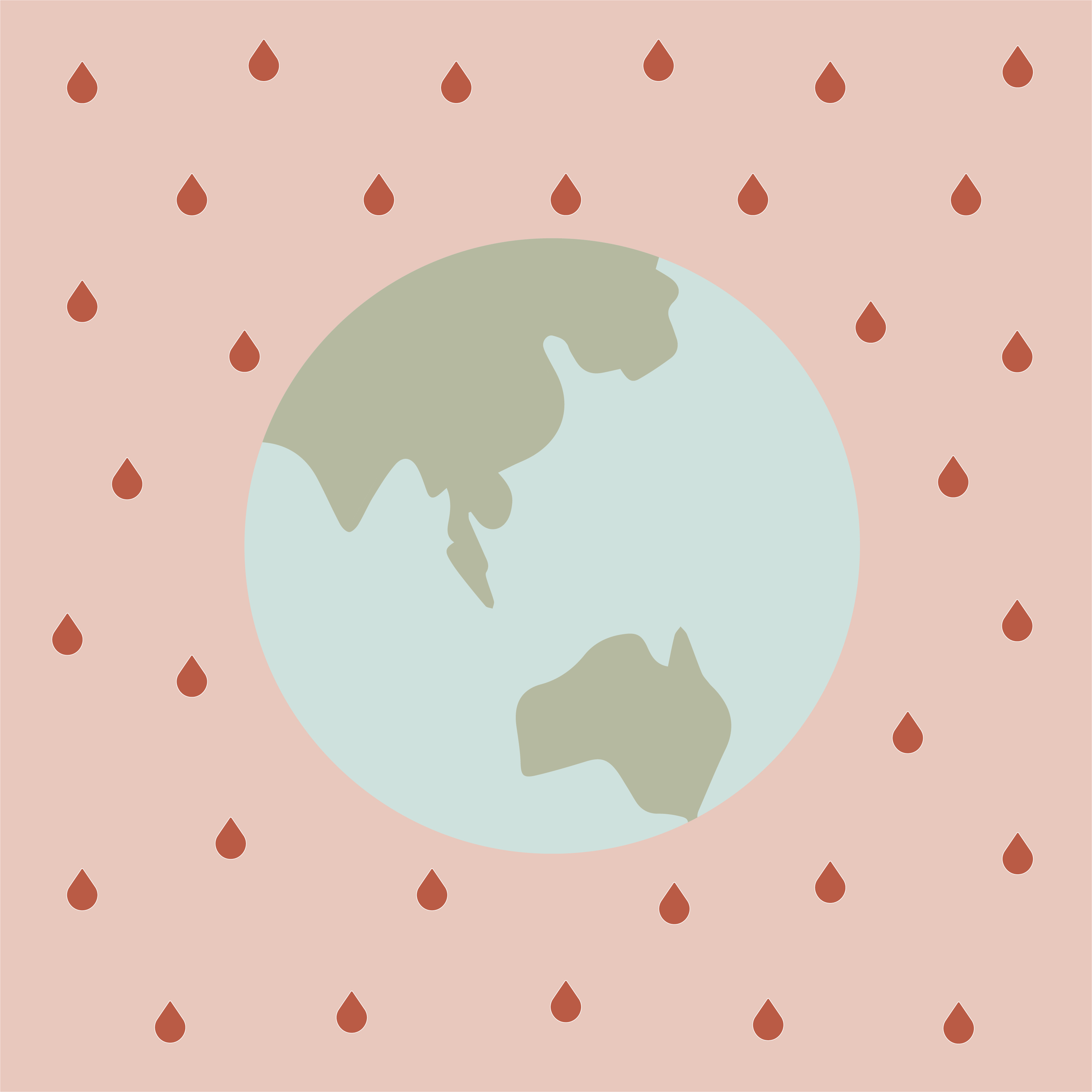
Jun 08, 2022
EXPLORING PERIOD CARE IN CULTURES AROUND THE WORLD
Our TOM Talks panelist Sabina McKenna explores how different cultures around the world approach period care.
Read More
Jun 08, 2022
STOP APOLOGISING FOR HAVING YOUR PERIOD
Our TOM Talks panelist Mel Mason talks about the importance of not apologising for having your period.
Read More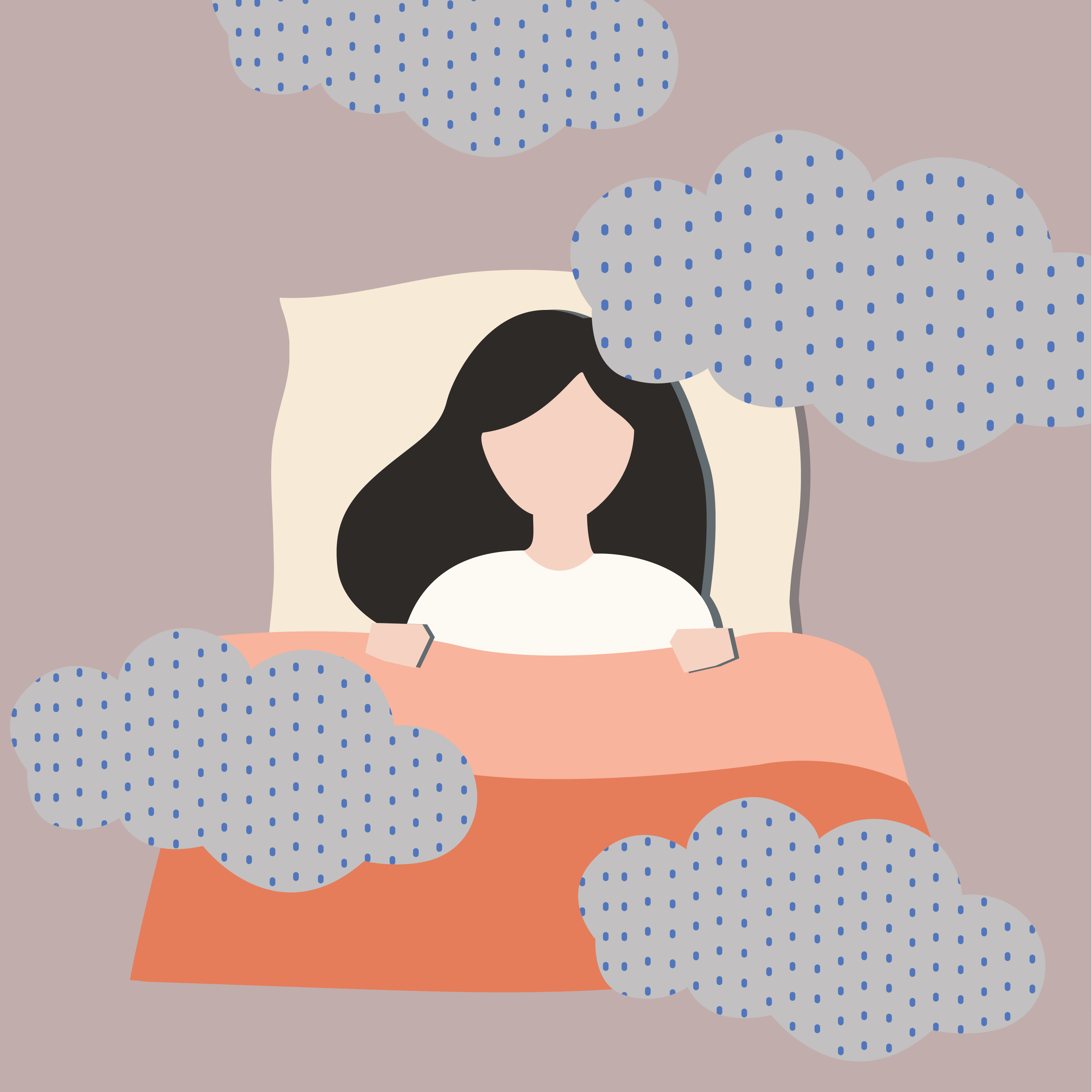
Jun 07, 2022
STRESSED? NOT SLEEPING? TRYING TO CONCEIVE?
TOM Talk's panelist Georgia Hartmann discussed the links between stress, sleep and fertility.
Read More
Jun 07, 2022
STRESS AND HOW IT AFFECTS YOUR SEX DRIVE
Certified sex coach Georgia Grace is here to unpack the link between stress and sex.
Read More